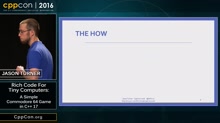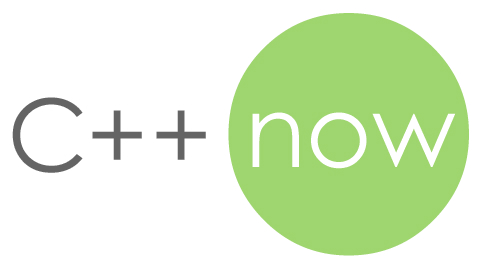CppCon 2016: Game engine using STD C++ 11--Jason Jurecka
 Have you registered for CppCon 2017 in September? Don’t delay – Registration is open now.
Have you registered for CppCon 2017 in September? Don’t delay – Registration is open now.
While we wait for this year’s event, we’re featuring videos of some of the 100+ talks from CppCon 2016 for you to enjoy. Here is today’s feature:
Game engine using STD C++ 11
by Jason Jurecka
Summary of the talk:
This session is going to give an account of the process and features used to create a game engine focusing on using std C++11 features and concurrency. We will go through the architecture of the engine design and the specifics of the C++11 features being used. We will also go through optimization choices and design mentalities that are being used to keep the code base simple, but powerful in game usage. The engine architecture we will be going through will be using parallelism as a way to distribute work and get performance out of the available hardware that can scale into the future.
While completing a full engine with cutting edge graphics techniques and a game to push the engine to its limits will take a while this session will go over the current state of the project and lessons learned. The ultimate goal of the project is to show the validity of using C++11 (and beyond) features in game engines to simplify code and improve stability while maintaining the performance and memory usage games demand.

 Have you registered for CppCon 2017 in September?
Have you registered for CppCon 2017 in September? 